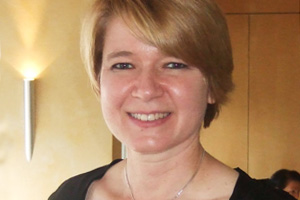UOIT professor’s work cited in Ontario Court of Appeal decision
March 11, 2013

The research of Dr. Andrea Slane, an Associate Professor of Legal Studies with the Faculty of Social Science and Humanities (FSSH) at the University of Ontario Institute of Technology (UOIT), was recently cited in an Ontario Court of Appeal decision (R. v. Ward, 2012 ONCA 660) regarding Internet Service Provider (ISP) disclosure of customer information to police conducting child pornography investigations.
Dr. Slane’s paper (What’s in a name? Privacy and citizenship in the voluntary disclosure of subscriber information in online child exploitation investigations), co-authored with Dr. Lisa Austin of the Faculty of Law at the University of Toronto was published in The Criminal Law Quarterly, Volume 57, in 2011. It sets out historical background and examines the principles that govern police when seeking third-party co-operation in an investigation, so as not to violate the rights of the accused under Canada’s Charter of Rights and Freedoms.
Dr. Slane and Dr. Austin conclude that case law has not yet adequately addressed limits on ISPs’ voluntary co-operation with police investigations nor the limits of a subscriber’s reasonable expectation of privacy in that context. They also say case law does not establish precedent with regard to possible Charter scrutiny of proposed legislation (such as the recently withdrawn Bill C-30) that would make it mandatory for ISPs to co-operate with police investigations, rather than voluntary.
“Dr. Slane’s ongoing contribution to knowledge and scholarship in Legal Studies is an outstanding example of our faculty’s collective depth of knowledge on society’s most pressing issues and questions,” said Dr. Shahid Alvi, Acting Dean, FSSH. “The Ontario Court of Appeal’s citing of her research demonstrates the social relevance and excellence of her work. Students in our faculty truly benefit from having day-to-day access to leading thinkers like Dr. Slane.”